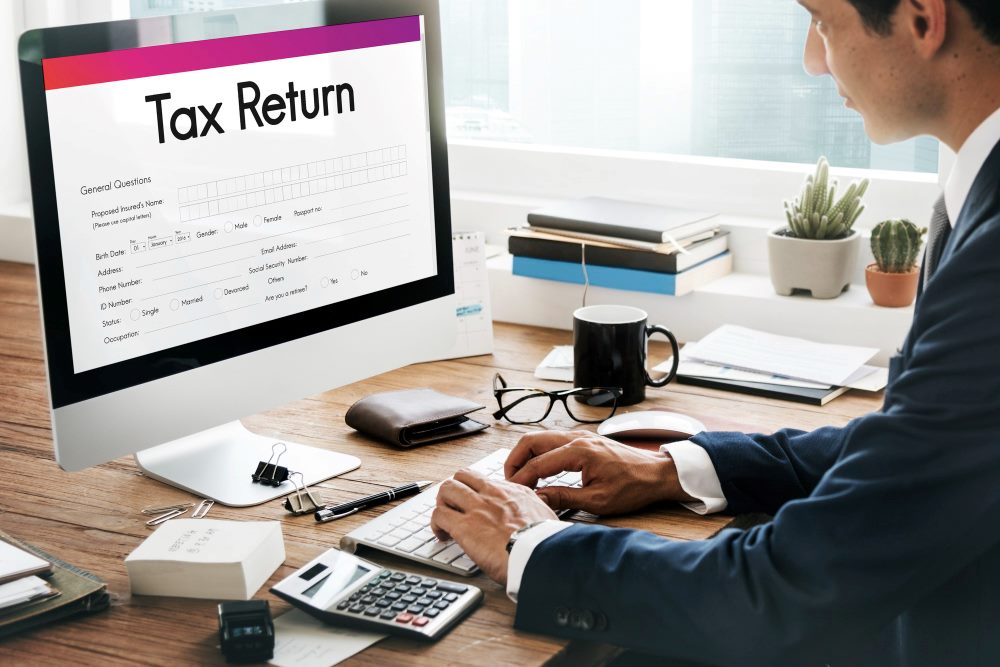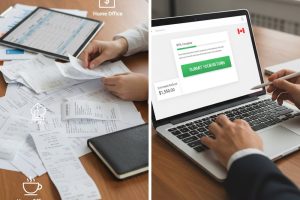Filing taxes in Canada can be overwhelming, whether you’re a first-time filer, a business owner, or someone juggling multiple income streams. With evolving tax laws, different credits, and various deductions available, it’s no surprise that many Canadians look for professional guidance. Fortunately, accounting experts offer valuable insights that make the process easier, less stressful, and more rewarding.
This article explores top tips from Canadian tax specialists, providing essential advice for individuals and businesses. Whether you’re seeking Canada tax return help, navigating corporate tax filing in Canada, or working with a personal tax accountant, these strategies will ensure you get the most out of your tax filing experience.
1. Get Organized Early
The key to stress-free tax filing is preparation. Waiting until the deadline approaches often leads to mistakes, missed credits, and a higher chance of audits. Experts recommend keeping a year-round filing system for documents such as:
-
T4 slips (employment income)
-
T5 slips (investment income)
-
Charitable donation receipts
-
Medical expense records
-
Business-related invoices and receipts
If you’re unsure what paperwork is necessary, seeking Canada tax return help from professionals can prevent oversights that cost money.
2. Know Your Deadlines
For most individuals, the deadline for filing a tax return is April 30th. Self-employed individuals and their spouses or partners have until June 15th, though taxes owing are still due by April 30th. Corporations have varying deadlines, generally six months after their fiscal year-end.
Late filing can result in penalties and interest charges, so knowing your deadlines is crucial. Accounting firms offering tax planning services often create reminders and schedules to ensure clients never miss important dates.
3. Take Advantage of Deductions and Credits
Tax experts emphasize the importance of understanding deductions and credits to maximize your return. Common deductions include RRSP contributions, childcare expenses, and moving expenses. Credits, on the other hand, include tuition amounts, disability credits, and first-time homebuyer credits.
A personal tax accountant can help identify which deductions and credits apply to your situation. Many Canadians underestimate the value of claiming every eligible credit, and professional advice ensures no opportunity is missed.
4. Don’t Overlook Small Business Expenses
For entrepreneurs and freelancers, tracking business expenses is vital. Eligible deductions can significantly reduce taxable income, including:
-
Home office expenses
-
Office supplies and equipment
-
Vehicle expenses for business use
-
Professional fees
When it comes to corporate tax filing in Canada, accurate expense reporting not only lowers taxes but also ensures compliance with CRA standards. Many business owners rely on accounting experts to navigate these rules effectively.
5. Maximize RRSP and TFSA Contributions
Registered Retirement Savings Plans (RRSPs) and Tax-Free Savings Accounts (TFSAs) are powerful tools for reducing taxes and building wealth. Contributing to an RRSP lowers your taxable income, while TFSAs allow for tax-free investment growth.
Professional tax planning services help individuals and corporations determine the right balance between RRSP and TFSA contributions, aligning financial goals with tax strategies.
6. Understand Employment and Investment Income
Different income types are taxed differently. Employment income is straightforward, but investment income, capital gains, and dividends have varying tax treatments. Misreporting these can lead to audits or penalties.
This is where Canada tax return help becomes valuable—accountants ensure income from multiple sources is reported accurately, taking advantage of preferential rates for investments where applicable.
7. Plan Ahead for Major Life Events
Life events such as marriage, buying a home, or starting a family can significantly impact taxes. Experts advise adjusting strategies accordingly. For example:
-
Marriage may open opportunities for spousal credits.
-
Homeownership allows access to first-time homebuyer credits.
-
Childcare expenses can reduce taxable income.
Consulting a personal tax accountant ensures your filing reflects these changes and captures every benefit available.
8. File Even if You Don’t Owe
Many Canadians mistakenly believe they don’t need to file taxes if they have no income or no balance owing. However, filing ensures eligibility for government benefits like GST/HST credits, Canada Child Benefit, and other provincial programs.
Seeking Canada tax return help ensures you never miss out on benefits simply because you didn’t file.
9. Watch for Common Mistakes
Tax specialists frequently see errors that can easily be avoided. Some of the most common mistakes include:
-
Incorrect or missing Social Insurance Numbers (SINs)
-
Forgetting to sign and date forms
-
Misreporting income from multiple jobs
-
Overlooking medical or charitable receipts
Using accounting services prevents these errors and ensures smooth processing.
10. Consider Professional Support
While DIY software has grown popular, there are times when working with a professional makes sense. Complex situations—such as owning a business, managing investments, or handling cross-border taxes—require specialized knowledge. An experienced accountant not only files your taxes but also provides strategies for future savings. Businesses in particular benefit from corporate tax filing in Canada handled by professionals, avoiding costly compliance issues.
The Benefits of Professional Tax Support
Professional assistance offers far more than filing returns. Accountants deliver personalized strategies for reducing tax burdens, planning for retirement, and managing long-term wealth. They keep track of legislative changes, ensuring compliance and uncovering opportunities for refunds or savings.
With professional tax planning services, individuals and businesses can move from a reactive approach—simply filing once a year—to a proactive strategy that maximizes financial health year-round.
Canada Tax Return Help for Different Needs
Whether you’re a student filing your first return, a family balancing childcare and home expenses, or a corporation managing multiple revenue streams, expert guidance is invaluable.
-
Individuals: Benefit from accurate reporting and optimized refunds.
-
Small Businesses: Gain clarity on deductible expenses and government programs.
-
Corporations: Ensure accurate corporate tax filing in Canada, avoiding penalties and audits.
By choosing the right level of professional support, you can feel confident that your taxes are managed effectively and with your best interests in mind.
Final Thoughts
Tax filing in Canada doesn’t need to be a stressful experience. With proper organization, knowledge of deductions and credits, and guidance from professionals, individuals and businesses alike can maximize savings and ensure compliance. From using RRSPs effectively to understanding complex income types, the advice of accounting experts proves invaluable. Whether you’re turning to a personal tax accountant or exploring Canada tax return help services, investing in professional expertise is one of the smartest financial decisions you can make.
By leveraging expert strategies and proactive tax planning services, you’ll not only file accurately but also create opportunities for long-term financial success.
FAQ’s
Q1. How can I maximize my tax refund in Canada?
A: You can maximize refunds by claiming all eligible deductions and credits, contributing to RRSPs, and keeping organized records. Professional Canada tax return help ensures nothing is missed.
Q2. Do I need an accountant to file taxes in Canada?
A: Not always, but working with a personal tax accountant or tax professional is recommended if you have multiple income sources, own a business, or need corporate tax filing in Canada.
Q3. What documents do I need for tax filing?
A: You’ll need income slips (T4, T5), receipts for eligible deductions, charitable donations, investment records, and medical expenses. A tax expert offering Canada tax return help can guide you further.






















